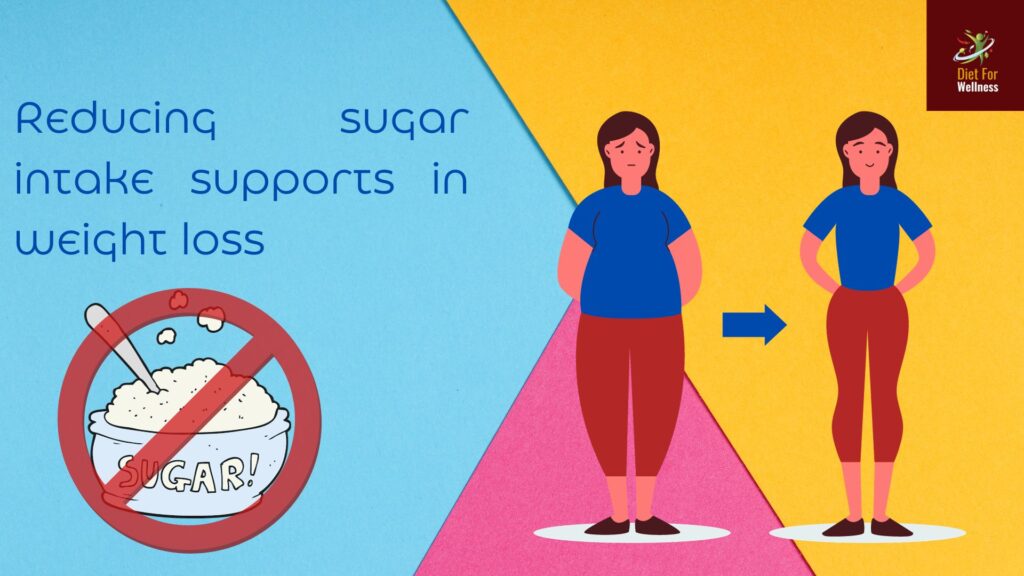Sugar and Weight Loss- Cutting Back on Added Sugars

A recent study conducted by the Madras Diabetes Research Foundation in collaboration with the Indian Council of Medical Research has revealed that approximately 101 million individuals in India are currently diagnosed with diabetes. Additionally, the research indicates that there are around 136 million people who are in the prediabetic phase, signaling a significant public health challenge for the country.
Sugar, particularly added sugars, is a focal point in the debate about diet and weight loss. The reason is simple- added sugars contribute additional calories without nutritional benefits, leading to weight gain and a plethora of related health issues.
Let’s know in detail why reducing added sugar is vital for weight loss and overall health.
Added Sugars- The Villain Who Keeps Hiding
Added sugars are those that are not naturally occurring in foods but are added during processing or preparation. They’re found in a wide array of products, from obvious culprits like sodas and candies to less obvious ones like bread, sauces, and salad dressings. The problem with added sugars is that they are high in calories while offering no essential nutrients, and they can be addictive, encouraging overconsumption.
The Caloric Culprit
Calories from sugar are particularly insidious because they don’t satiate hunger, leading to a cycle of constant snacking and overeating. This can cause a caloric surplus, which the body stores as fat, leading to weight gain. Moreover, foods high in added sugars often displace healthier options that are more nutrient-dense and better for weight management.
Sugar and Metabolism
Excessive sugar intake doesn’t just affect weight; it can also disrupt metabolism. When sugar is consumed in large amounts, the body releases insulin to help process it. Over time, this can lead to insulin resistance, a precursor to type 2 diabetes, and can also make losing weight more challenging.
The Benefits of Cutting Back
Reducing sugar intake can have immediate benefits. For one, it can help in creating a calorie deficit, which is essential for weight loss. It can also stabilize blood sugar levels, leading to better energy levels, improved mood, and reduced cravings. Over the long term, cutting back on added sugar can decrease the risk of chronic diseases such as diabetes, heart disease, and certain cancers.
Strategies to Reduce Sugar Intake
To cut back on added sugars, start by reading food labels meticulously. Look for sugars under different names, such as sucrose, high-fructose corn syrup, dextrose, etc. Also, opt for whole, unprocessed foods when possible, as they are less likely to contain added sugars. When cravings hit, choose natural sugars found in fruits that provide fiber, vitamins, and minerals.
Closing the discussion
Reducing added sugar is more than just a weight loss strategy; it’s a lifestyle change that can enhance overall health. It’s not about cutting out all sweetness from life but about being mindful of where sugars are coming from and prioritizing natural sources over processed ones. These changes can lead to sustainable weight loss and a healthier, more balanced diet.
Moderation is key, and making informed choices can have a profound impact on your health journey.
